When does a Puppy start mouthing?
Mouthing is when a dog routinely grabs people using their mouth without causing an injury.
That happens mainly during play, exercise, or whenever they are excited. For puppies under 5 months of age, it is still okay as a puppy explores things with its mouth. But if the dog is older, like 8 months or older, it becomes a serious problem later on.
Older dogs when they play they should have learned the rules, even when they are overexcited. Older dogs should not play-bite anymore.
The best way to train a puppy stop mouthing is through dog training from an early age on.
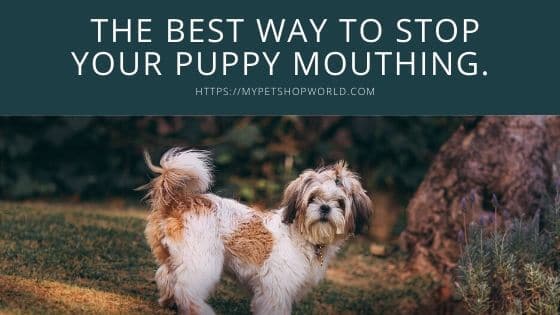
Nipping, Biting and Mouthing
Have you ever been nipped by a young dog or a puppy? It might be your own dog or the dog of a friend. If so you know that it feels like a knife or an ice pick, in short, it hurts.
It becomes hard to stop dog nipping and dog biting when you have an adult dog. ( most puppies who have not been trained from a young age on will nip and bite as an adult dog)
If your Dog is nibbling or biting other people in the butt when getting up, it is not a nice feeling for the person being nipped.
You also feel embarrassed, and all you can say is sorry and you hope your friend is still a friend and understands it even with a bruised butt.
You feel pretty bad, and over time people avoid coming to your home. The best way to train a puppy stop mouthing is with passion and love.
A dog should never make you feel uncomfortable when you are around your friends and neighbours. You are in charge, not your dog.
Download our free ebook ” 100 DIY Dog training tips.”Best checklist for your DIY Training.
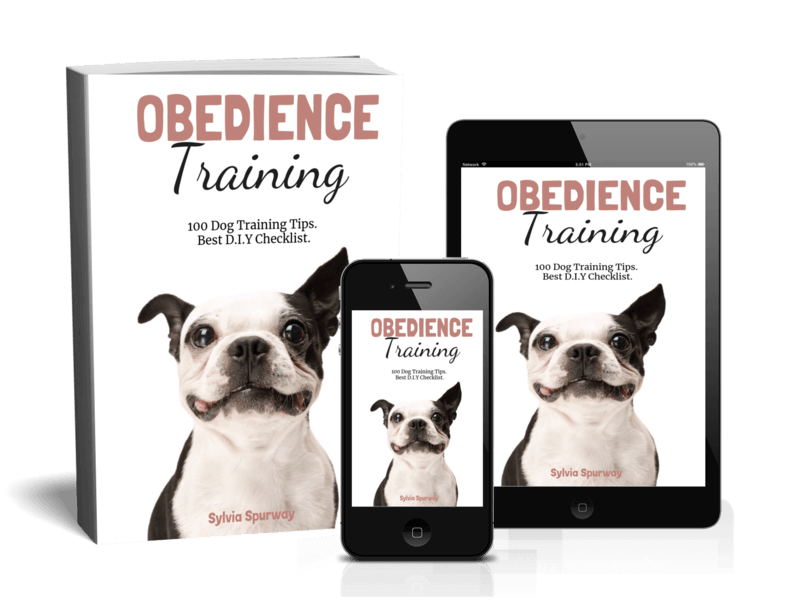
Socializing a dog from a young age on is essential.
Every young puppy needs dog training from an early age. Dog Training should be done either from a certified trainer or from yourself.
Letting a puppy grow up without proper training is irresponsible and it is an invitation to problems with an adult dog.
Educate yourself about the Breed of the dog you are getting. Does it suit you and the environment you live in?
Depending on the breed of the dog the nipping can be quite painful, and it is definitely not fun being nipped in the bud, hand or fingers from any dog.
Puppies do instinctively nip and bite when playing alongside their siblings.
That is a way of communicating with the siblings and the environment around them.
If uncontrolled by his less close family and “pack” members, a young dog would, in a second, be taught by his mother and siblings to manage his chewing. It has less impact on their skin and fur.
Unfortunately, for us humans, we aren’t so lucky, yes, it hurts when a puppy, young dog or an adult dog is nipping or is biting you, and it can definitely pierce some of your skin.
The majority of puppies are separated from their mothers and family prior to the time when they’ve had an opportunity to take this skill on board and understanding it remains “unlearned”.
Get some information on the puppy or dog you want to bring into your home. Things that are important to know.
- Educate yourself on the breed of the dog.
- Puppyhood
- Socializing my puppy how vital is it!
- How to train my puppy to stop nipping and biting
Why do puppies bite and nip?
You can be sure that every adult dog who mouth people has never been trained or learned from the pet owner during their puppy and young adulthood that nipping and biting are not acceptable.
They probably never learned how to be gentle and to chew toys instead.
You might appreciate that your dog is not gnawing on or chewing your leg, hand or finger maliciously. Chewing, gumming and mouthing are ordinary activities for puppies and young adolescent dogs.
It is normal, and if they had stayed long enough with their siblings and mother, they would be taught this in their early puppyhood. It remains unlearned.
Many pet parents don’t enjoy a dog that bites, chews and mouth their clothing, limbs or hands during play and interaction.
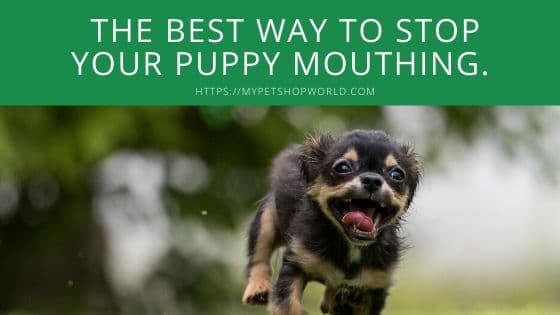
So, what to do?
First, you need to let your puppy have fun and let it mix with a group of other dogs.
Note that it is an important step to let your puppy mix from an early age on with other dogs.
Don’t make a mistake and let him grow up isolated and protected, you don’t do your puppy favour. It might not be visible when he is younger, but when your puppy grows into adulthood, it becomes a behaviour problem.
Puppies are as active they jump, they run like crazy they fall and they need to have fun.
Here comes the learning part of your little fur ball of fun, when it becomes a bit too boisterous when he is together with other dogs, the pack members speak to the other dogs and will immediately address his improper and unnecessary behaviour.
As necessary as it goes, this socialisation along with different dogs is the most straightforward hands on the way for your puppy to discover and manage his temptation to nip or to the bit.
Socializing is an important tool for your puppy to learn.
Socializing has additional benefits that allow your pup to socialise in a way where he discovers not to be nervous or develop any fear of strange dogs.
He will get rid of his surplus energy and vitality. You will have a calmer puppy and young dog when he grows up.
It makes him more peaceful when amongst other members of the household.
It is proven that when puppies do not socialise with other dogs, they will be overactive, wild and destructive in demonstrating a range of different and difficult behavioural patterns. ( they can’t get rid of their energy it is essential and necessary that a puppy can release its energy)
Dogs without any canine social skills generally tend to react unnecessarily nervous and aggressive to new situations.
Download our free ebook ” 100 DIY Dog training tips.”Best checklist for your DIY Training.
Socializing with other people and smaller kids
Socializing also means to other people. It is essential to introduce a young dog to other dogs, but it is also important to let him socialise with other people. (Particular if you have younger members of your household ) It is important for a puppy being around younger children is also essential for growing up, and it helps the development of puppy adulthood.
Younger children are closer to weight and size to a dog, it possesses that selfsame puppy-like vitality what can be interpreted as the belligerent in a puppy.
How to train my puppy to stop nipping and biting.
1. When your puppy is relatively youthful ( less than 4 months) this is a sensitive period for your puppy to continue interacting with the family in an appropriate way, where both neither your young ones or the puppy becomes overly excited.
Depend on your puppies breed that can be a significant aspect to look out for. ( quarrelsome dogs)
2. Another way to train your puppy or young dog to stop nipping and biting is elicit its confidence and esteem.
It involves subsequent training and becomes more natural when the efforts of your training become permanently notable.
It will help you in the long run as you are able to strive and manage, then rectify difficult or unmanageable behaviour.
3. You have to treat your puppy with the same level of respect and consideration that you expect from your puppy. “This is important. “
Whenever you play or train your puppy, please try to handle it with consideration.
What that means is no hitting, no slapping, no screaming even in situations where you feel like losing your passion. The key to successful training is calm energy. Your dog will sense how you feel and will act accordingly.
4.In a situation where you deal with severe improper behaviour stay cool and calm if you want your puppy to learn the things that make your life and his life easier and more comfortable.
5. Physical discipline and or abuse will ruin the confidence and admiration of your puppy. You will make your puppy scared and frighten and he will act nervously when you are around. You will only achieve the opposite.
Your training will counteract with your effort what you are trying to achieve. It will not stop your puppy from nipping and biting. In all likelihood, it will do nothing more than flummox him.
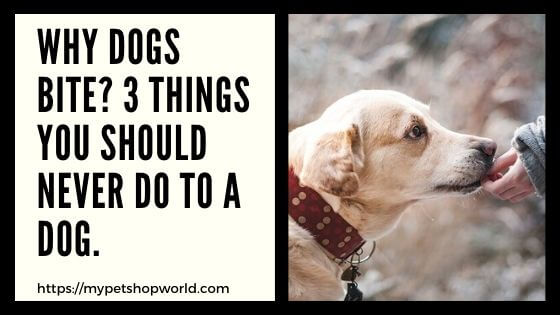
6. Giving treats and an abundance of compliments together with the positive support you will be able to train your puppy infinitely more quickly, faster and far more efficiently.
Your puppy will learn and understand that it can have fun without nipping and biting. Your puppy will learn to play with you in a gentle way.
7. Use chewy toys and give your puppy the toys instead of your toes or fingers. Have plenty of them at home. You will need them.
Chewy toys are the same important for a puppy as they are for a baby when teething.
A puppy discovers during growing up a lot of things, and if you do not want your favourite things chewed or bitten through and through give your puppy alternatives to chew.
An old shoe of yours is a good idea to give him for chewing and destroying the best with laces.
I remember my dogs chewed all the old shoes I wanted to throw, and I have to say it kept them quite busy.
It helped them when they started to nip and bite as an alternative. As the old shoes been there favourite chew toys. They still are.
A Young dogs that bites and nips will mature into a grown dog that will continue to nip and bite unless you instruct it otherwise. It is not fun having a dog who bites and nips.
Playing with the dog is then not fun. As he will have the control and he will sense your fear of being bitten or nipped.
Over time this antagonistic and aggressive behavioural pattern can and will definitely become worse and less manageable.
Eliminating the nipping and biting in a puppy from an early age on is really important. Interacting with your dog should be a joy for both of you. I have a Rottweiler dog her name is Bonnie and she is such a gentle dog.
I am very proud of her. We trained her since she was a young dog as we got him from a friend when Bonny was 8 months old. ( She had a nipping habit when she first came to us)
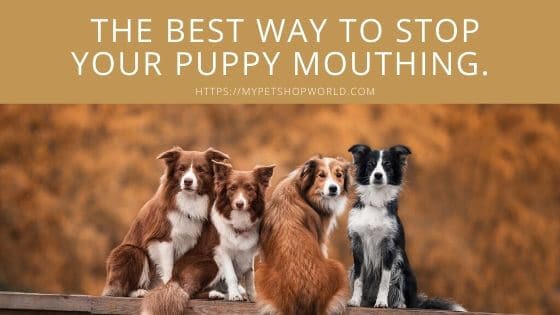
There are professional dog trainers around look in your local newspaper or search the internet for professional trainers with CPDT certification if you are not able to train your puppy for whatever reason.
The best way to train a puppy stop mouthing is from a young age on. Puppy training is fun and it forms a bond between you and your puppy.
Remember what you miss now will reflect in your puppy growing up. Training and socialising is an essential part of the life of a dog growing up.
Do you have experience with a dog mouthing or nipping? How did you solve it please advise us here with your solutions? Did you do the dog training yourself share your tips with us
Thank you for stopping by.
All yours Melanie
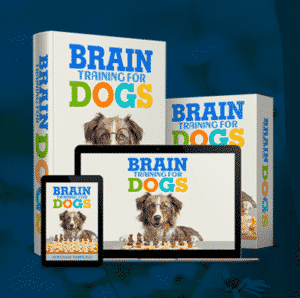
Dog Training can be done at home and by yourself.
Brain Training for dogs is a great training that helps your dog to follow instructions in an easy and consistent way.
It Develops your Dog’s “Hidden Intelligence” To eliminate bad behaviour and Create the obedient, well-behaved pet of your dreams…
Adriene is going to reveal, how you can QUICKLY eliminate any behavioural problem… no matter how badly you think it’s ingrained… no matter what kind of dog you have.
Adrienne Farricelli is a professional CPDT-KA certified dog trainer, and for the last 10 years, she has been helping people to eliminate bad behaviours in dogs and train well behaved, obedient, loving pets…by showing them how to bring out the ‘hidden intelligence’ inside their dog. Adrienne believes that every dog without exception has a hidden intelligence inside…
Get the dog training now!
Read also:
Tips for first-time dog owners
Make your own homemade dog food recipes
Why people get bitten by nice dogs
Leave a Reply